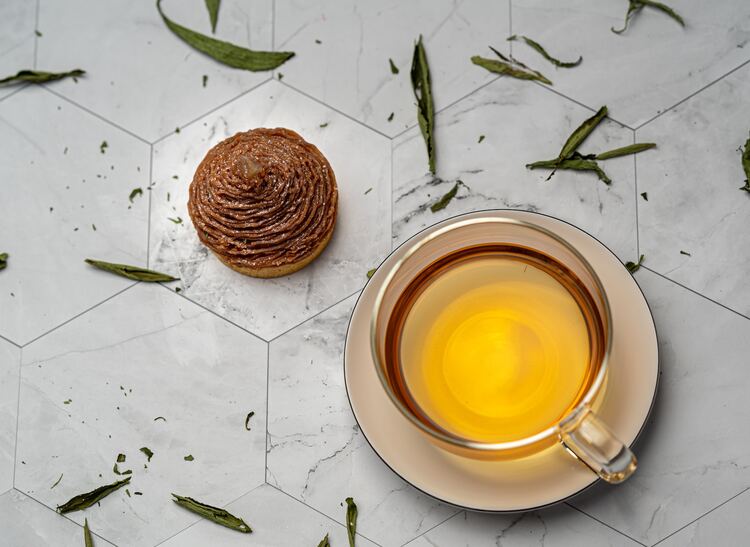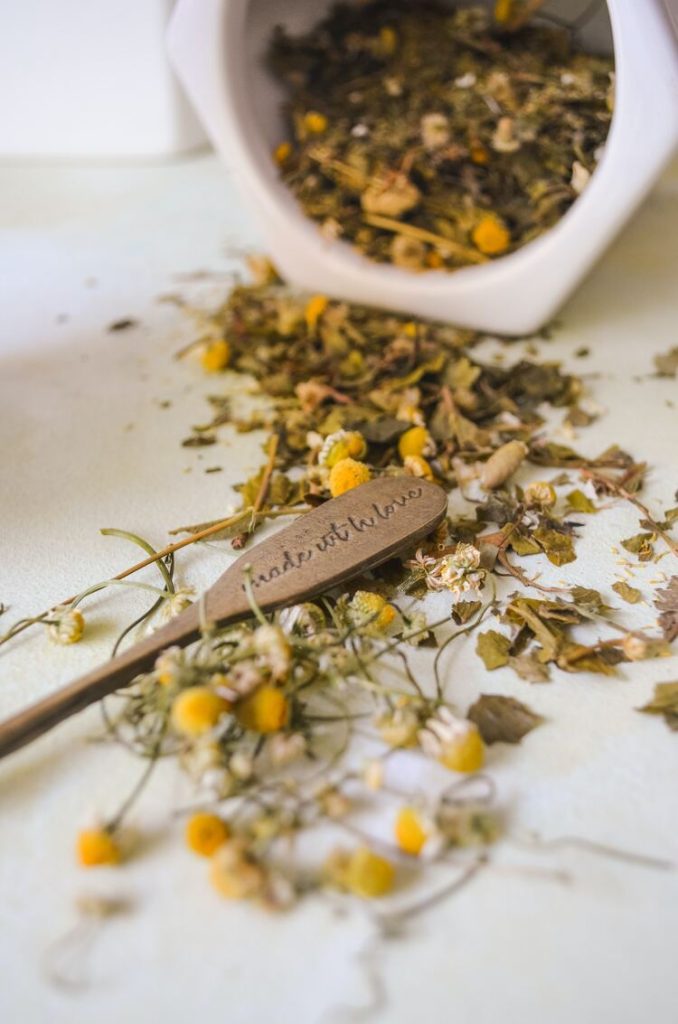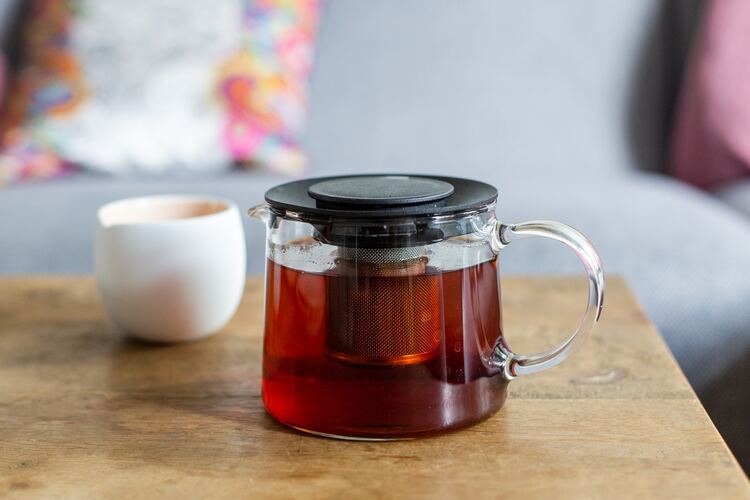When we think about tea, one of the first varieties that comes to mind is green tea. With its countless health benefits and mild taste, it’s a popular choice for many of us. With the vast array of tea options available these days, it’s natural to wonder: is green tea herbal tea?
Let’s start by defining the two categories of tea. Green tea, just like black, white, and oolong tea, is made from the leaves of the Camellia sinensis plant. The key difference between these teas is the way they are processed. Herbal teas, on the other hand, are made from a plant’s leaves, flowers, seeds, or roots, but not the Camellia sinensis plant.
Understanding these fundamental differences, we can now answer the question: Green tea is not an herbal tea. While both tea types offer numerous benefits, they belong to separate categories based on their origin and processing methods.
Keep reading to find out more about these two categories!
Please note: This article contains affiliate links, meaning I may earn a commission if you make a purchase by clicking a link. Of course, this comes at no extra cost to you and helps me to keep offering solid information to readers.

Is Green Tea Herbal Tea?
This is an interesting topic (at least, to a tea lover like me). We should start by diving into the different categories of tea to help clarify whether green tea is considered an herbal tea or not. To do this, we first need to discuss the tea plant Camellia sinensis and the concept of herbal tea.
Camellia Sinensis
The primary source of all true teas is the Camellia sinensis plant. This evergreen shrub or small tree is native to East Asia and produces leaves that are used to create a variety of teas, including green, black, white, and oolong tea. The difference between these teas lies in the processing methods and the level of oxidation the leaves undergo.
Green tea, in particular, is made from leaves that are quickly steamed or pan-fired to prevent oxidation (a chemical reaction that darkens the leaves and changes their composition), thus retaining their green color and fresh, grassy flavor. Being a product of Camellia sinensis, green tea is considered a true tea.
Herbal Tea
Herbal teas, on the other hand, are not derived from the Camellia sinensis plant. Instead, they are infusions made from various plants, fruits, flowers, and herbs, such as chamomile, peppermint, and hibiscus. Herbal teas are often caffeine-free and can provide various flavors and potential health benefits.
It’s important to note that herbal teas are not true teas in the traditional sense because they do not originate from the Camellia sinensis plant. As a result, they differ significantly from green tea in terms of their source, processing, and properties.
In a few words, green tea is a true tea that comes from the Camellia sinensis plant, whereas herbal teas are made from various other plants and botanicals. Therefore, green tea cannot be considered an herbal tea.
Health Benefits of Green Tea
To dig deeper into the differences between green tea and herbal tea, let’s discuss the numerous health benefits of green tea. Green tea, despite containing caffeine, is a popular choice for health-conscious individuals due to its abundant natural compounds that aid in overall wellness.
Antioxidants
Green tea is well-known for its high concentration of antioxidants, particularly catechins. These natural compounds help reduce free radicals in our body, which can minimize oxidative stress and cellular damage. By incorporating green tea into our diet, we’re providing our body with an effective defense against various diseases and contributing to a healthier lifestyle.
Weight Loss
Aiding in weight loss is another fantastic benefit of green tea consumption. Green tea contains compounds called epigallocatechin gallate (EGCG) and caffeine, which are known to assist in our body’s metabolism. As our metabolism increases, we burn more calories, and drinking green tea regularly can help us lose weight or maintain a healthy weight more easily.
Heart Health
Protecting our heart health is essential, and green tea is a beneficial addition to a heart-healthy diet. The catechins in green tea help reduce inflammation and promote the overall cardiovascular system by improving blood flow, regulating cholesterol levels, and reducing blood pressure. This, in turn, can decrease our risk of developing heart disease, stroke, and other cardiovascular conditions.

Health Benefits of Herbal Tea
We believe that herbal teas offer a wide range of health benefits due to their natural ingredients and unique combinations. In this section, we will discuss the benefits of some of the most notorious herbal teas.
Chamomile Tea
Chamomile tea is a popular choice among herbal teas for promoting relaxation and aiding sleep. Derived from the chamomile flower, it has been traditionally used to relieve stress, enhance mood, and improve digestion. Specific benefits of chamomile tea include:
- Reduces inflammation
- Boosts the immune system
- Helps alleviate menstrual pain
- Improves heart health
Peppermint Tea
Peppermint tea, derived from the Mentha piperita plant, is known for its cooling and refreshing flavor. Along with its pleasing taste, it offers several health benefits:
- Improves digestion and reduces digestive discomfort
- Relieves headaches and migraines
- Enhances mood and mental focus
- Helps clear sinuses
Hibiscus Tea
Hibiscus tea, made from the dried flowers of the Hibiscus sabdariffa plant, has a tangy flavor and vibrant red color that makes it stand out among herbal teas. Its health benefits comprise:
- Lowering blood pressure
- Helping with weight management
- Packed with antioxidants, which protect the body against free radicals
- Promoting liver health
This flower is used to make “agua de jamaica,” a popular drink in Mexico and several Central American countries.
Ginger Tea
Ginger tea is made from fresh ginger root. It is known for its spicy and warming flavor. With respect to health benefits, we can point out the following:
- Aids digestion
- Reduce inflammation
- Boost immunity
- Relieves menstrual cramps
- Lowers blood sugar levels
- Reduces stress and anxiety

Choosing the Right Tea for You
As tea enthusiasts, we understand that the vast selection of teas available can be overwhelming. That is why we want to provide some ideas on how to choose the right tea for you, specifically discussing green tea and herbal tea.
First, let’s consider the flavor preferences. Green tea has a fresh and subtle taste, while herbal teas can vary significantly depending on the blend of herbs used. Some herbal teas have a fruity, sweet taste, while others may be minty or earthy. The key is to explore different flavors and find the one that best suits your palate.
Nutritional benefits are another vital aspect to consider when selecting a tea. Green tea is known for its antioxidants, particularly EGCG, which may help in boosting metabolism and supporting the immune system. On the other hand, herbal teas can have various health benefits based on the herbs used.
Lastly, decide whether you prefer caffeinated or non-caffeinated tea. Green tea contains a modest amount of caffeine, which can provide a gentle energy boost. Herbal teas, in general, are caffeine-free, making them a suitable option for those looking to avoid caffeine or enjoy a soothing cup before bedtime.
Green Tea Buying Recommendations
If you are ready to try green tea (or are ready to keep drinking), here are some recommendations:
Yamasan Green Tea Leaves Sencha

Vahdam, Green Tea Leaves from Himalayas


Top Herbal Recommendations
If you prefer herbal teas, here are some recommendations:
U.S. Wellness Naturals Peppermint Tea

U.S. Wellness Naturals Chamomile Tea

U.S. Wellness Naturals Hibiscus Tea

It doesn’t matter if you prefer green tea or herbal tea; exploring various teas can be an enjoyable experience, and it’s worth trying different blends to find your perfect cup. Happy tea-sipping!
Have we answered the “Is green tea herbal tea” question? Which one do you prefer?
More About Tea
What Does Green Tea Taste Like?
The Process of Making Green Tea